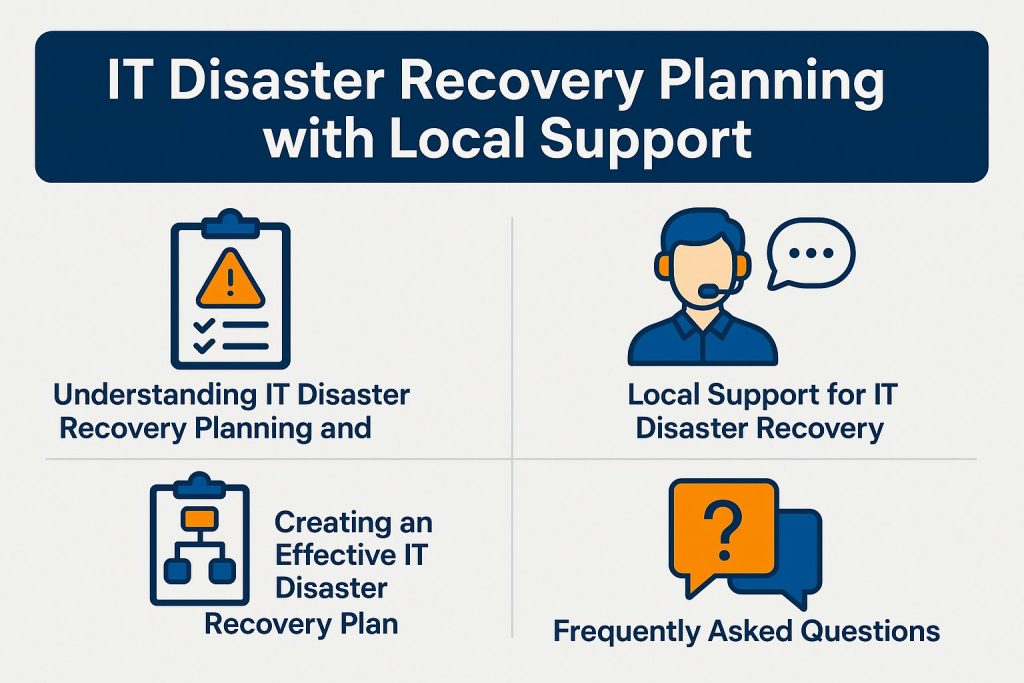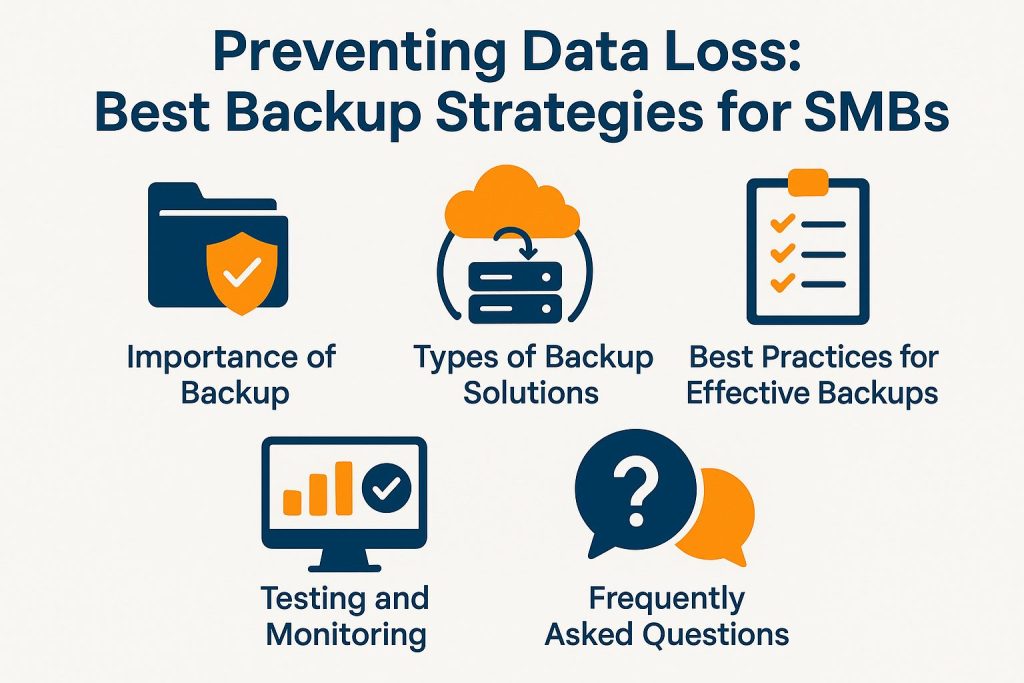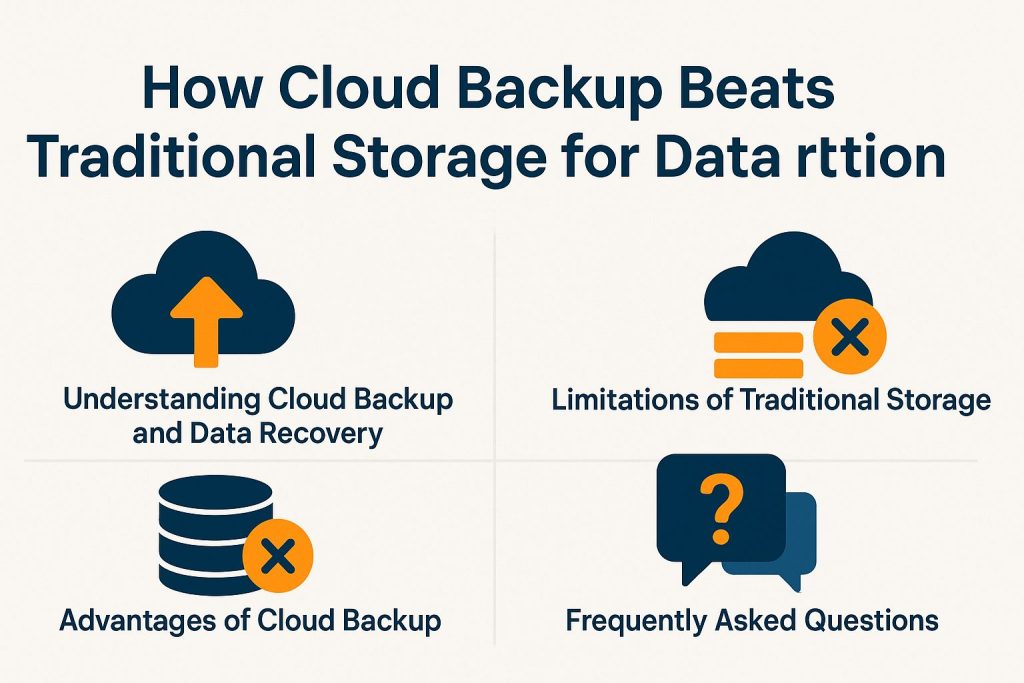The Importance of Data Backup and Disaster Recovery Planning in Columbia

Today, data backup and disaster recovery planning are very important. This is especially true for businesses in Columbia. Cyberattacks and natural disasters are common. Organizations must create strong strategies to protect their important information. This article looks at data backup and disaster recovery planning. It discusses their importance in Columbia, the risks of ignoring them, and steps to create effective strategies.
The security of critical data begins with these foundational practices.
Importance of Data Backup and Disaster Recovery Planning

Data backup and disaster recovery planning are essential. They help businesses continue and protect digital assets. Modern IT is complex, so strong data protection is needed.
Organizations must acknowledge the significance of data backup to mitigate risks associated with system failures, hardware and software malfunctions, and natural disasters. These strategies not only improve data integrity but also establish a comprehensive risk management framework that facilitates emergency planning, operational resilience, and the implementation of a reliable backup strategy, thereby enhancing overall cyber resilience. This approach aligns with the principles outlined in our analysis of the Benefits of Partnering with a Local IT Support Team in Columbia, which can further bolster disaster recovery initiatives.
What Are Data Backup and Disaster Recovery Planning?
Data backup creates copies of critical data. Disaster recovery planning develops strategies to restore IT systems after unexpected events like data loss or system failures.
These essential practices act as safeguards against incidents that could disrupt business operations, result in irreversible data loss, or compromise data security and compliance regulations.
Various backup solutions are available, including cloud storage options that facilitate remote data saving, as well as local backups that store data on physical devices such as external hard drives.
Organizations must understand key metrics. These include recovery time objective (RTO) and recovery point objective (RPO), backup frequency, and data availability.
Together, these metrics assist organizations in selecting the most appropriate backup strategies to ensure swift data recovery and minimize operational impact.
Why is it Important in Columbia?
In Columbia, data backup and disaster recovery are very important. The business landscape is unique, and there are strict regulatory compliance requirements, which demand effective risk assessment and management strategies.
Businesses face unique challenges in this environment. They must follow complex regulations about data storage and protection. The risk of data loss not only presents considerable operational challenges but also attracts scrutiny from regulatory authorities, which could result in substantial fines and damage to reputation.
Engaging stakeholders proactively is crucial. It helps organizations cultivate a culture of compliance and resilience. By establishing robust disaster recovery plans, companies can not only protect their data but also maintain operational continuity during unforeseen events, thereby positioning themselves for success in an increasingly data-driven market. For an extensive analysis of this trend, our comprehensive study on how Columbia businesses can benefit from managed IT services provides valuable insights into strategies that enhance business resilience.
The Risks of not Having Data Backup and Disaster Recovery Planning

Not having data backup and disaster recovery planning puts organizations at risk. This can harm their operations and business continuity.
This oversight has the potential to result in catastrophic data loss and compromised data integrity, impacting information security and overall business resilience, which could severely affect the organization’s overall performance and reliability.
Potential Consequences and Losses
The potential consequences of not implementing a robust data backup and disaster recovery strategy can include significant data loss, financial repercussions, and reduced business resilience in the face of system failures or unexpected incidents.
Organizations need to understand that data loss can happen in different ways. Hardware can fail, like when servers crash. Software can also fail due to corrupt files or malicious attacks.
Each scenario can cause costly downtime, affecting productivity and trust. This impacts productivity, client trust, and data retention policies. The financial ramifications can be substantial, as companies may encounter not only direct costs associated with data recovery but also long-term losses linked to reputational damage.
Organizations must focus on effective data preservation and recovery. This helps them stay competitive and recover quickly from data setbacks.
Steps to Implement Data Backup and Disaster Recovery Planning
To implement effective data backup and disaster recovery, organizations must follow best practices. Engaging with a local IT support team can be crucial, as detailed in the benefits of partnering with a local IT support team in Columbia, which helps organizations recover quickly and keep data accessible and safe.
Best Practices and Strategies

Using best practices in data backup is essential. This includes data redundancy and using both remote and local storage. These steps help manage risks and meet IT standards.
Today, organizations must evaluate different backup options. These should match their specific needs and work environments.
Local storage solutions, like external hard drives and network-attached storage, provide quick access and control. Conversely, offsite options, like physical backups stored remotely, protect against local disasters.
Cloud computing transforms data management. It offers scalable storage solutions that improve efficiency and data access from almost anywhere. This shift not only helps safeguard critical information but also streamlines the backup process, ensuring that businesses can recover smoothly in the event of data loss. Curious about how managed IT services can enhance these processes and offer cost-effective solutions for your business? Our guide on Managed IT Services in Columbia for Businesses sheds light on these benefits.
Frequently Asked Questions
What is the importance of data backup in Columbia?
Data backup is crucial. It protects important data and prevents loss during disasters or data breaches. In Columbia, a strong data backup system is necessary. It ensures business continuity and reduces the impact of disasters.
What are the consequences of not having a disaster recovery plan in Columbia?
Without a disaster recovery plan, businesses in Columbia risk losing critical data. This can lead to downtime, disruptions, and financial damage. It is essential to have a solid disaster recovery plan in place to mitigate these consequences.
How does data backup and disaster recovery planning benefit businesses in Columbia?
Data backup and disaster recovery planning help businesses in Columbia protect their data and continue operations. This allows businesses to continue serving their customers and minimize disruptions, maintaining a competitive edge in the market, and ensuring data loss prevention through effective IT service management.
Why is it important to have a disaster recovery plan specific to Columbia?
Columbia has unique risks that need a tailored disaster recovery plan. By having a plan specific to the region, businesses can better prepare for potential disasters and minimize the impact on their operations.
What are some key elements of a strong data backup and disaster recovery plan in Columbia?
A strong plan includes regular backups, off-site storage, testing and updating the plan, and clear communication among team members. It should also consider risks specific to the region.
How can businesses in Columbia ensure they are adequately prepared for potential disasters?
Businesses in Columbia should regularly review and update their data backup plans to ensure adequate preparation. They should also update their disaster recovery plans. Conduct risk assessments. Invest in robust and reliable data backup and recovery systems. Train employees on emergency procedures. Have a designated team to handle disasters if they occur.




